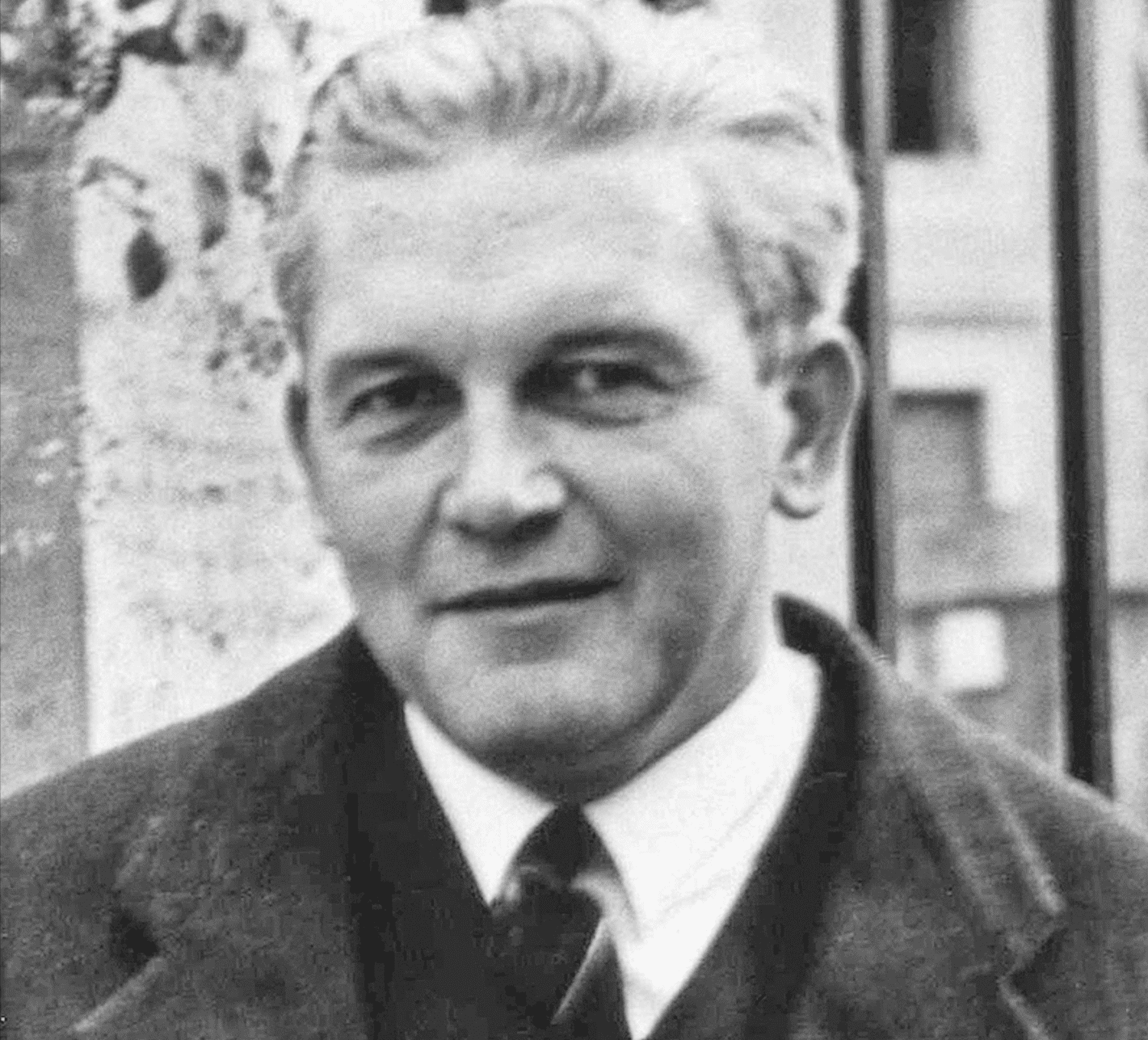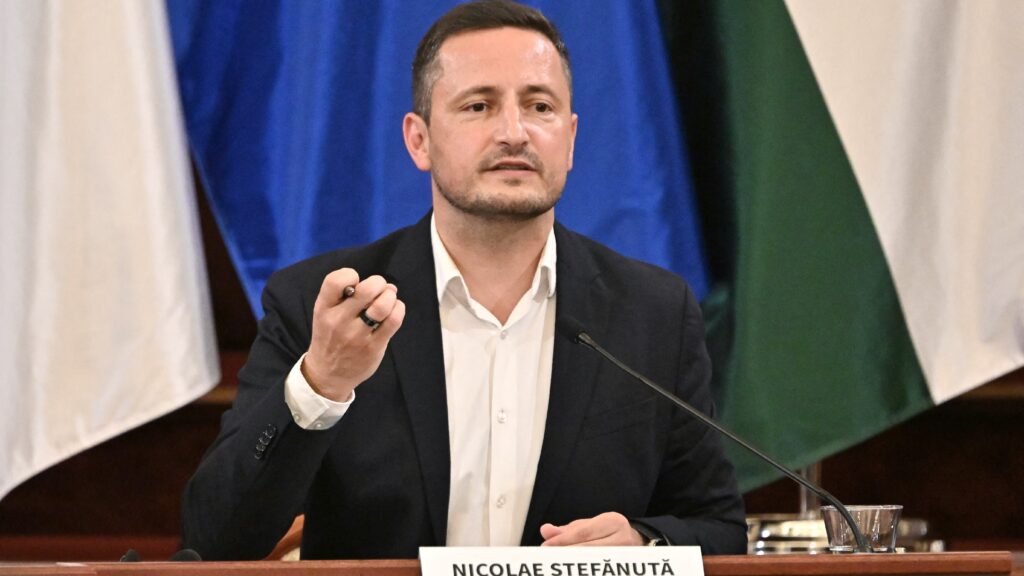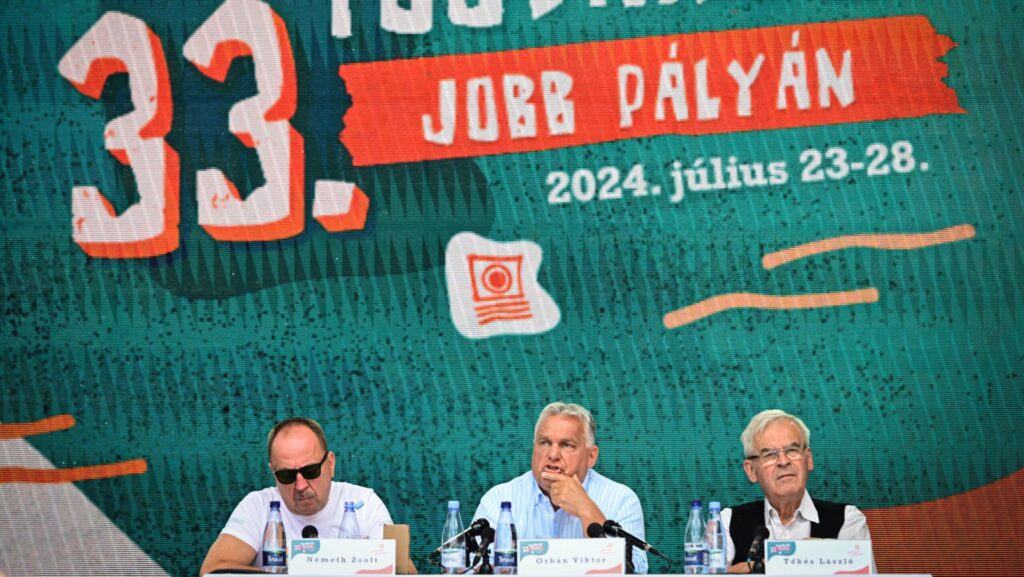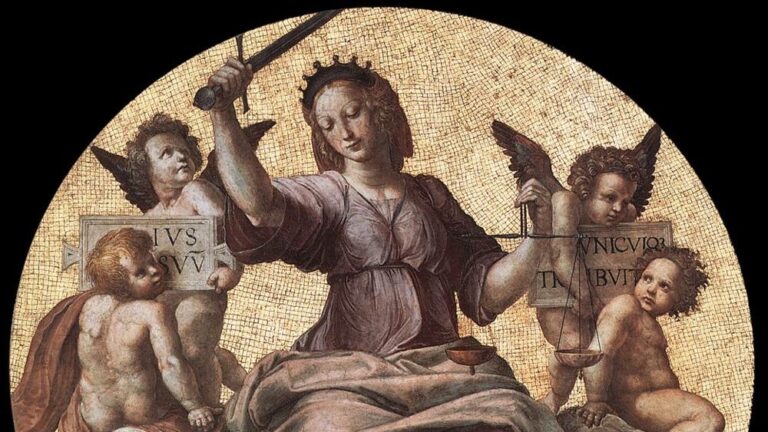What approach should Christians take to modern politics? What are their obligations in contemporary public life? Which Christian values should be endorsed in modern democracy and which political instruments may be used to further those values? Several Christian philosophers, theologians, and politicians have in the past sought to provide answers to these crucial questions. Our series of articles seeks to rekindle interest in those authors, firstly because we believe that they receive less attention than they deserve, and without forgetting the extensive academic literature on them (since most of them attract serious scholarly interest) we argue that their ideas are underrepresented in public discourse. Secondly, we believe that to answer the questions raised above, one should be able to study acknowledged theologians and philosophers who are well-versed in the wisdom of the Christian faith and base their political arguments on it. Consequently, the political insights of modern theologians will be presented with a special focus on the Christian origins and sources of their ideas. We hope that these articles will increase public interest in these inspiring figures.
Our article series already elaborated on several Christian authors, both Catholic and protestant, including Abraham Kuyper, Reinhold Niebuhr, Joseph Ratzinger, Johann Baptist Metz, Ernst-Wolfgang Böckenförde, Helmut Richard Niebuhr and Walter Rauschenbusch.
Peterson used to be one of those thinkers who in the introduction to the our series of articles on the topic are referred to as undeservedly underrepresented in contemporary discourse
In this article I attempt to provide a brief overview of a thinking about politics as exemplified by the German theologian Erik Peterson. For a long time, Peterson used to be one of those thinkers who in the introduction to the our series of articles on the topic are referred to as undeservedly underrepresented in contemporary discourse. The extent to which this classification is true in his case is attested by the fact that, as late as in 1992, Barbara Nichtweiß wrote in her in-depth monograph on Peterson that not much had changed with regard to the little attention Peterson’s work attracted since 1954, when the French Jesuit monk, later cardinal Jean Daniélou, complained that ‘Peterson’s work [is] not being followed except by a tiny elite.’[1] Indeed, hardly anyone commemorated the seminal theologian on the centennial of his death. There was, however, a major turnabout in the 2000s, mostly as a result of the publication, in 2010, of the complete works of Peterson, after a long period of gestation ever since the 1990s, when the former Bishop of Mainz Karl Lehmann had first proposed the project. Much of this achievement was the undying merit of Nichtweiß, who served as editor of Peterson’s collected works.
The year 2010 marked the 120th anniversary of Peterson’s birth and the 50th of his death. This time he drew the attention he deserved. The Vatican held an international symposium to commemorate him. One of the speakers was Pope Benedict XVI, who had been deeply influenced by Peterson’s work since his youth as a theologian. It is hardly surprising, then, that the Pope made a deeply intimate confession about his intellectual indebtedness to Peterson:
‘I read the book Theologische Traktate (Theological Treatises) with increasing curiosity and let myself be truly impassioned by it because in it I found the theology I was seeking: it is a theology that uses all the seriousness of history to understand and study texts, it analyses them with the full gravity of historical research and does not relegate them to the past.’[2]
Indeed, Peterson’s political thought fits in perfectly with this distinctive theological approach. But before delving into the nature of that thought, we must first answer the question: Who was this unduly underrated German theologian? Who was Erik Peterson? Born in Hamburg in 1890, Peterson studied in Germany from 1911 to 1924, then became a university lecturer in his home country. In 1933 he moved to Italy, where in 1946 he was appointed professor of the Pontifical Academy of Archaeology. He died in 1960 in Hamburg.
If we look at the particulars of his life, one thing will readily strike the eye: it was well into his forties that he decided to leave his homeland and settle in Italy. The date is of course symbolic, although the tragic developments of history were not the only reason why Peterson turned his back on Germany, which had by then been almost completely engulfed by Nazism. Peterson had a Protestant upbringing; his father was Lutheran, his mother a Huguenot.[3] True to form, between 1911 and 1924, Peterson conducted his studies in the preeminent university cities of Protestant theology: Strasbourg, Greifswald, Berlin, Basel, and Göttingen. However, during his professorship in Bonn (1924–1929) his circle of friends revolved around the Benedictine monk Thomas Michels and Carl Schmitt, also a Catholic.[4] In addition, several other Catholic friends proved rather influential for Peterson, who finally converted to Roman Catholicism in the Eternal City, at Christmas in 1930. Therefore the year 1933 was a watershed in Peterson’s life not only geographically, but also in his financial circumstances. His embrace of Catholicism gave him a new faith, but deprived him of his tenure as professor, so the firmness of his new religious conviction went hand in hand with a new uncertainty of livelihood.
This juncture in Peterson’s life speaks to the topic at hand, in that his work Der Monotheismus als politisches Problem (Monotheism as a Political Problem), published in 1935, must be regarded as one of the milestones of his evolving thinking about politics. The subtitle of the book, Ein Beitrag zur Geschichte der politischen Theologie im Imperium Romanum (A Contribution to the History of Political Theology in the Roman Empire) raises the question of how much relevance a certain brand of political theology in Antiquity can have for our modern era. In any case, what do we mean by political theology in this context?
Peterson himself never exactly specified what he meant by political theology
One of the authors we have looked at before, Johann Baptist Metz, already made us confront the conceptual difficulties inherent in the notion of political theology. In our analysis, we used a via negativa approach in our attempt to define the essence of Metz’s political theology. Specifically, we sought to identify what political theology was not for Metz, and found that it could be defined in opposition to the political theology hallmarked by Carl Schmitt, whose understanding of the notion will bear upon our current subject as well. A good starting point toward grasping the notional problems around political theology could be the definition supplied by Ernst-Wolfgang Böckenförde, another author we have discussed in this series, if only because Peterson himself never exactly specified what he meant by political theology. In the 1980s, Böckenförde noted that the phrase political theology was ‘not being used consistently but endowed with a variety of substantive and systematic meanings.’[5] Böckenförde establishes three distinct senses in which political theology can be understood. The first is the legal meaning of political theology, which he associates with Carl Schmitt’s classic definition. In this sense, then, ‘political theology refers, first and foremost, to the translation of theological concepts to the fields of political science and law.’[6] Secondly, the institutional meaning involves the political affinities of specific technological concepts. As examples of this type of political theology, Böckenförde cites Augustine’s distinction between Civitas Deiand Civis terrana, the two-swords theory of Pope Gelasius, and Pope Leo XIII’s theory of the state, as well as Peterson’s concept of political theology itself.[7] The third meaning of political theology involves the interpretation of Christian revelation through the lens of the social and political attitudes of Christians. Böckenförde assigns the teachings of Johann Baptist Metz to this latter group.
Having clarified the issue of how to construe the expression of political theology in Peterson, the question still remains how this is relevant to us today. Der Monotheismus als politisches Problem, which conjoins two previously published studies by Peterson, is a historical work discussing the political theology of monotheism. Peterson finds that monotheism does indeed show certain analogies to a certain political formation, namely monarchy. Peterson’s treatise draws on a large corpus of painstakingly researched sources as it enumerates countless examples for political arrangements, echoing the various versions of monotheism in Hellenistic Antiquity. Lack of space prevents us from discussing these correspondences in detail here. Suffice it to say that his investigations of Hellenistic monotheism led Peterson to conclude that Christian monotheism is different in its essence, which makes it unfit for the role of political analogy. This basic truth was not recognized clearly by early Christians, and in fact remains widely disputed today. Peterson lays the confusion at the feet of the Jewry who, under Hellenistic influence, merged the concept of God with the monarchy principle of Greek philosophy. This conceptual blurring served as a sort of propaganda by epitomizing the religious primacy of the Jews over the pagans. Later, as Peterson points out, ‘this propagandistic theme of political theology was adopted by the Church as it gained ground across the Roman Empire.’[8] Its imprint is obvious in the work of some of the greatest early Christian authors, from Tertullian to Origen and Eusebius. Peterson bases his own standpoint on the thought of Gregory of Nazianzus, Archbishop of Constantinople, who made a vital contribution to elaborating the doctrine of Trinity. Embodying God in three entities, Trinity is a one-of-a-kind monotheism without any feasible reflection or analogy on earth. It is by recognizing this that Peterson declares the impossibility of founding a political theology on a Christianity which professes the Trinity.
The relevance of Peterson’s work today comes from two sources. The first is the timeliness of the historic era in which he lived. In the last footnote of his book he implicitly criticizes Carl Schmitt’s political theology when he says he merely cited a ‘specific example’ in order to demonstrate the ‘impossibility’ of a political theology.[9] However, it may seem to the reader that Peterson and Schmitt discuss two entirely distinct subjects. Peterson offered his criticism, as György Geréby points out,[10] as a friendly scholarly admonition for a Schmitt increasingly committing himself to the cause of National Socialism, reminding him that no autocracy could be legitimized on the basis of Christian theology.
‘Christ bore witness to the truth in public before the political world on this earth’
The other topicality is brought to our attention by Barbara Nichtweiß, who suggests that Peterson ‘as a theologian was always deliberately and emphatically of the political mind,’[11] who believed that man as a ‘polis-dwelling creature’ is invariably determined by the political order in which he happens to live. This determination cannot and should not be altered by Christianity, because ‘Christ bore witness to the truth in public before the political world on this earth,’[12] and this testimony warns Christians against trying to retreat to a neutral, apolitical sphere. We cannot arrive at the correct interpretation of political theology from the Christian perspective unless we acknowledge the fact that, by virtue of our Christian faith, we are not only the citizens of the terrestrial polis, but the builders of the polis of the apocalypse. Yet the political theology of Schmitt and his followers uses structural analogies to undermine the firm distinction between the earthly polis and the polis at the end of time. Such a blurring of boundaries invariably creates space for the alluring words of false prophets to be heard. The dangers of such false prophecies are laid bare to us through examples from the first century by a remarkable Catholic convert theologian whose name was Erik Peterson.
[1] Barbara Nichtweiß, Erik Peterson: Neue Sicht auf Leben und Werk (Freiburg, Basel, Wien: Herder, 1992), 1.
[2] ‘Address of His Holiness Benedict XVI to Participants in the International Symposium on Erik Peterson’, vatican.va (25 October 2010), https://www.vatican.va/content/benedict-xvi/en/speeches/2010/october/documents/hf_ben-xvi_spe_20101025_peterson.html, accessed 28 Febr. 2022.
[3] György Geréby, ‘A „párthuss nyíllövés”: Erik Peterson Carl Schmitt politikai teológiájáról’, Isten és birodalom: politikai teológia (Budapest: Akadémiai Kiadó, 2019).
[4] Nichtweiß, Erik Peterson: Neue Sicht auf Leben und Werk, 726.
.[5]Ernst-Wolfgang Böckenförde, ‘Politische Theorie und politische theologie: Bemerkungen zu ihrem gegenseitigen verhältnis’, Revue européenne des sciences socials, 19/54-55 (1981), 233–243.
[6] Böckenförde, ‘Politische Theorie und politische theologie: Bemerkungen zu ihrem gegenseitigen verhältnis’, 236.
[7] Böckenförde, ‘Politische Theorie und politische theologie: Bemerkungen zu ihrem gegenseitigen verhältnis’, 237–238.
[8] Erik Peterson, Der Monotheismus als Politisches Problem. Ein Beitrag zur Geschichte der Politischen Theologie im Imperium Romanum (Leipzig: Jakob Hegner, 1935).
[9] Peterson, Der Monotheismus als Politisches Problem, 168.
[10] Geréby, ‘A „párthuss nyíllövés”: Erik Peterson Carl Schmitt politikai teológiájáról’, 130.
[11] Nichtweiß, Erik Peterson: Neue Sicht auf Leben und Werk , 828.
[12] Nichtweiß, Erik Peterson: Neue Sicht auf Leben und Werk, 828.








